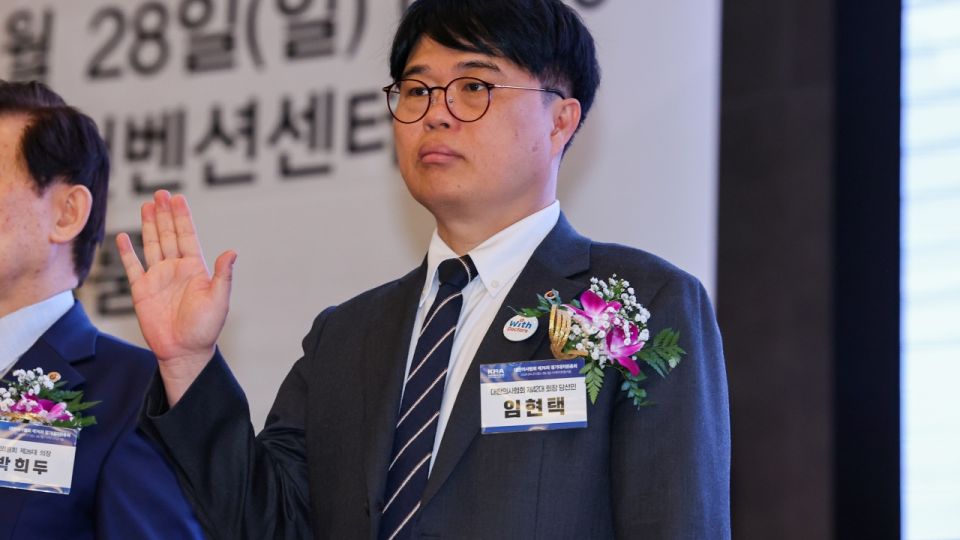May 2, 2024
SEOUL – The Korean Medical Association, the largest group in the medical community representing some 140,000 doctors nationwide, inaugurated its new leader Wednesday, seeking to unite the voices of doctors in preparation for a possible dialogue with the government.
The association’s new leader, Lim Hyun-taek, has maintained a hard-line stance against the Yoon Suk Yeol administration’s move to increase the number of doctors in the country to cope with population aging.
The 54-year-old pediatrician is anticipated to lead the KMA’s standing committee meeting to consolidate the medical community’s stance alongside trainee doctors, medical students and professors over the government’s medical student quota expansion plan. The KMA stands apart from groups representing trainee doctors, med students and professors, respectively.
Lim said in a social media post on Wednesday he would “put the utmost effort to untangle the complexities and ease concerns” about the lingering medical standoff.
Lim was widely seen as the most hard-line candidate in the KMA presidential election out of the three, taking an uncompromising stance in protest against the government’s push for quota expansion.
Lim has demanded the Yoon administration scrap its quota hike plan and return to square one as a condition to begin dialogue, arguing that the school admission quota should actually decline by up to 1,000 per year as the shrinking population will curtail the demand for medical services.
Effective in March 2025, South Korean universities’ plan to admit up to a total of 5,058 students to their medical schools will be finalized in May. For the past two decades, the medical schools here have admitted 3,058 students each year.
He also demanded that Yoon apologize to the public over the quota hike plan, calling it unilateral, after he was elected as the KMA president. He added the medical circles will not sit down for talks with the government, until Yoon sacks key figures of the Health Ministry, such as Minister Cho Kyoo-hong and Second Vice Minister Park Min-soo.
Most recently on Sunday, Lim said at a KMA meeting that he would fight against Seoul’s push to increase the quota at all costs with a “do-or-die spirit.”
Doctors’ stance contrasts with the Yoon administration’s argument that the projected increase in the elderly population would shoot up the demand for medical services, overwhelming trainee doctors in hospitals with work due to the shortage of doctors.
This is the latest development of the persisting standoff between the government pushing for the quota hike plan and medical professionals who quit their jobs en masse.
About 12,000 trainee doctors simultaneously resigned from their posts in February and have not returned. Students and professors in medical schools followed junior doctors with leaves of absence and resignations.
In the meantime, hospitals have been hit by staff shortages in the wake of the massive resignations, leaving the remaining medical staff fatigued. The government has dispatched public doctors and military physicians to fill in as a stopgap measure. So far, Seoul has approved a 128.5 billion won ($92.6 million) budget reserve for the remuneration of the doctors filling in for the resigned doctors.


